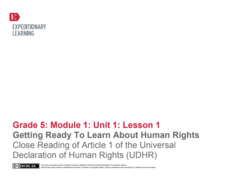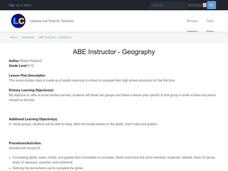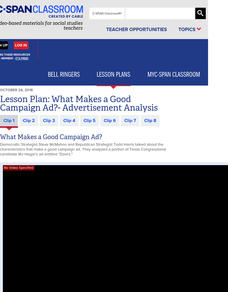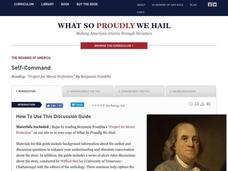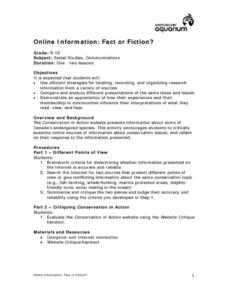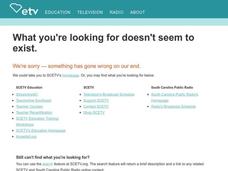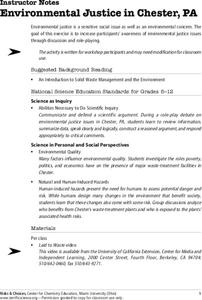EngageNY
End of Unit 2 Assessment: Working with Two Texts - Reading, Listening, Summarizing, and Synthesizing
As a summative assessment for this unit on colonial trade, fourth graders listen to and read informational texts in order to demonstrate their ability to take notes, write summaries, and draw connections. Young scholars first listen as...
EngageNY
Summarizing Complex Ideas: Comparing the Original UDHR and the "Plain Language" Version
The eighth lesson plan in this series continues the focus on vocabulary and increasing young readers' awareness of academic language. Pairs of learners participate in a short vocabulary review activity called Interactive Words in which...
K12 Reader
Summarize It: President Theodore Roosevelt's 7th Annual Message to Congress
How did Theodore Roosevelt stress the importance of conservation during his time as president of the United States? Take a closer look at the language Roosevelt used himself in a 1907 address to Congress, and have your young historians...
Curated OER
Science NetLinks: Adolescent Sleep
Wake up, sleepy head! High schoolers craft a creative presentation that represents how they feel when they wake up on a school morning. After the presentations, a reading of Academic Sleep Times and Academic Performance launches a...
National Museum of the American Indian
The A:Shiwi (Zuni) People: A Study in Environment, Adaptation, and Agricultural Practices
Discover the connection of native peoples to their natural world, including cultural and agricultural practices, by studying the Zuni people of the American Southwest. This lesson includes examining a poster's photographs, reading...
Global Oneness Project
Far From Home
A timely and provocative lesson inspires high schoolers to tackle the Syrian refugee crisis. They analyze a compelling photo essay before discussing and writing about it.
Curated OER
Revive Reviews With Student-Created Study Guides
Students work cooperatively in small groups to practice note-taking and outlining skills which are applied as student create unit Study Guides for their classmates. They demonstrate critical thinking skills as they decide the most...
EngageNY
Getting Ready to Learn About Human Rights: Close Reading of Article 1 of the Universal Declaration of Human Rights (UDHR)
Introduce young readers to informational texts with a well-designed, ready-to-use, and Common Core-aligned unit. Young readers learn a variety of skills while studying the Universal Declaration of Human Rights (UDHR). As the first...
Curated OER
Geography Skills
Students practice their geography skills. For this geography skills lesson, students locate, plot, and label places on maps and globes.
Curated OER
Lesson 2: The Constitution: Our Guiding Document
Explore the structure and content of the US Constitution in the second lesson of this five-part social studies series. A collection of activities, games, and videos complement a class reading of a document summarizing the US...
What So Proudly We Hail
Life, Liberty, and the Pursuit of Happiness: A Lesson on the Declaration of Independence
What does it mean to say that a right is unalienable? How did the founding fathers convey this revolutionary concept in the Declaration of Independence? Engage in a close reading and analysis of the Declaration of Independence, and...
Alabama Department of Archives and History
Alabama's 1901 Constitution: What Was at Stake?
Who should be able to vote? As part of a study of the 1901 Alabama Constitution, class members examine primary source document that reveal the reasons the authors gave to support their positions on this question and their assumptions in...
C-SPAN
What Makes a Good Campaign Ad?- Advertisement Analysis
In the time of a hotly contested presidential election, campaign ads are almost ubiquitous—but what makes them good? Using ads from the 2018 midterm elections, learners consider the various strategies candidates use to get the vote....
Curated OER
Studying Mind Maps Created at Other Schools
Students explore Africa and mind maps created by students from other schools. They discuss Africa and the number of countries, diversity of language, cultures, races, religions, and lifestyles and in groups study a mind map from another...
What So Proudly We Hail
The Meaning of America: Self-Command
Even for one of the most accomplished men in American history, there was room for improvement. Challenge high schoolers to use Benjamin Franklin's Project for Moral Perfection to analyze text, make inferences, connect to historical...
NPR
Civil Rights of Japanese-American Internees
Prompted by a viewing of Emiko and Chizu Omori’s Rabbit in the Moon, a documentary about the internment of Japanese-Americans during World War II, high schoolers examine a series of documents, including the Bill of Rights and the UN’s...
Curated OER
Archaeological Study
Learners analyze the difference between archaeology and anthropology while studying the evolution of different products. In this archaeology and anthropology lesson, students trace the progression of a certain tool or product and come up...
K12 Reader
Biography of Abraham Lincoln
One skill essential to reading comprehension, is learning how to summarize a text. After reading a biography of Abraham Lincoln, readers demonstrate this ability by crafting a brief summary of Lincoln's life.
Curated OER
Kumeyaay Indians
Useful for literary analysis, citing textual evidence, or summary skills, this instructional activity about the Kumeyaay Indians would be a good addition to your language arts class. Middle schoolers read novels and summarize the...
Curated OER
Online Information: Fact or Fiction
Discuss ways to determine if the information middle and high schoolers gather online is accurate. Using the Internet, they cite two sources that show conflicting points of view on a subtopic of conservation. They summarize and analyze...
Curated OER
Rachel's Life is in a Hole
Explore how lack of access to water impacts peoples' lives in poor countries. Through text reading and discussion, middle schoolers are presented with the story of a young girl who lives and functions with limited water resources. They...
Curated OER
Lessons from the Holocaust
In an ultimate lesson plan about listening to opposing points of view, your young historians read testimony from the Nuremberg Trials by Nazi SS officers regarding their actions during the Holocaust and a brief speech by Himmler to SS...
Curated OER
The Original's Sins
Are history textbooks plagiarized? The New York Times article, “Schoolbooks Are Given F’s in Originality,” looks at this question and forms the basis for a lesson on textbooks and plagiarism. The very detailed plan includes resource...
Curated OER
Environmental Justice in Chester, PA
Over several days, learners communicate and defend an argument regarding environmental justice issues in Chester, PA. After discussing the issue and viewing a video about the location of several toxic waste facilities in Chester, they...









